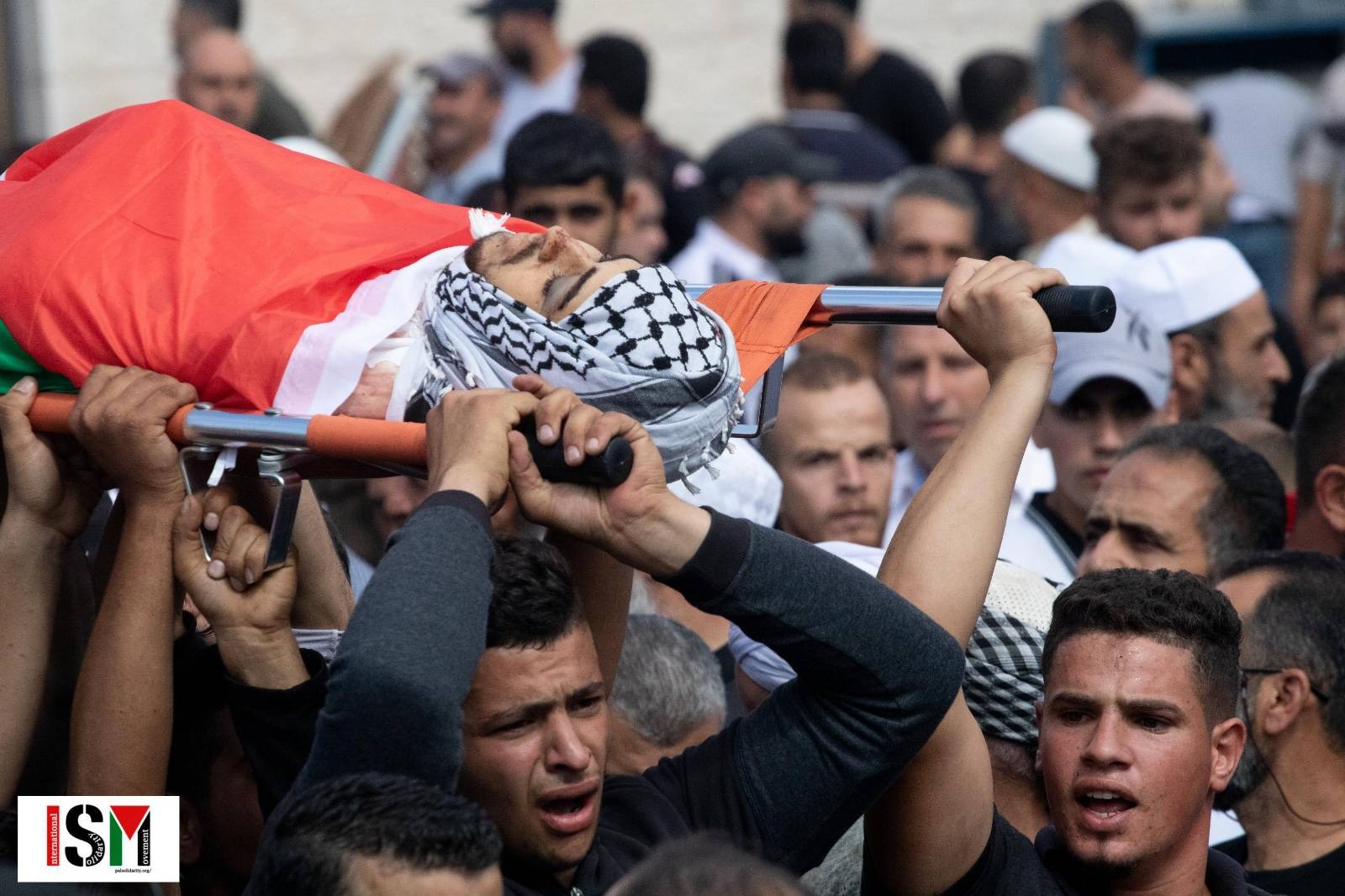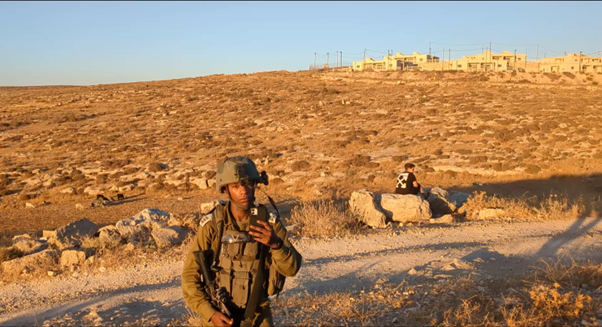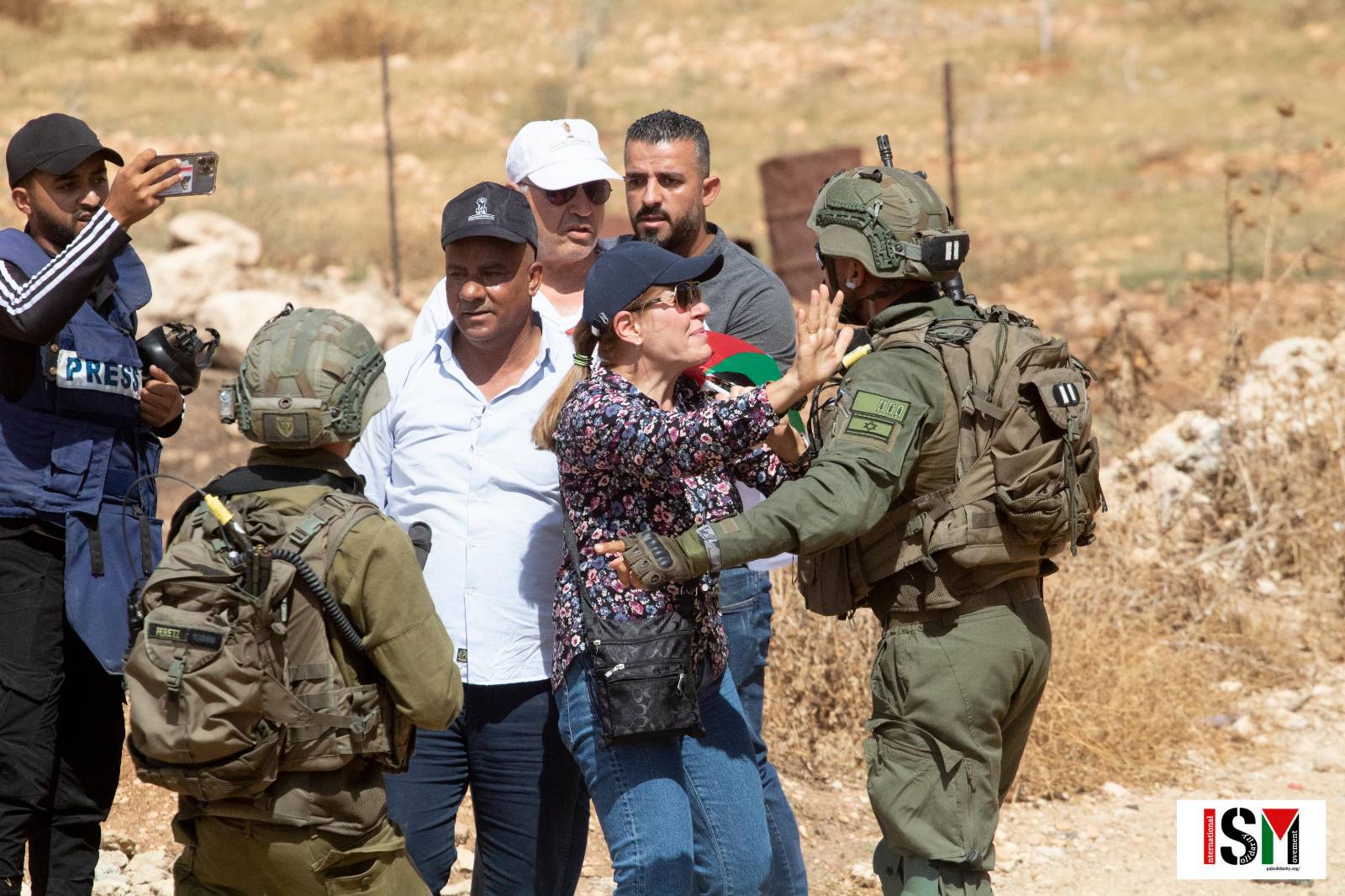Category: Photo Story
-
6 Palestinians killed by settlers with the protection of the Occupying forces in Qusra village
By Diana Khwaelid Qasra village – 12/10/2023 On the evening of Wednesday 11-10-2023, a group of extremist settlers stormed the village of Qusra, north of Nablus, and attacked Palestinian citizens. The settlers were working with the protection of the Israeli occupation army. Palestinian youth from the village came out to try and defend from the…
-
Watch: Israeli soldiers harass Palestinian teenager and try to intimidate internationalists in Masafer Yatta
On August 10th, three israeli soldiers harassed Abud Huraini, a palestinian teenager from the village At-Tuwani, in the region of Masafer Yatta in the South Hebron Hills, while he was brining out his flock of goats to graze. The three soldiers arrived by jeep from the illegal israeli settlement of Ma’on, which is located just…
-
Beit Dajan faces the occupation
By. Diana khwaelid for ISM Palestinian activists marked the third consecutive anniversary of the revival of national events to resist the occupation of the lands of Beit Dajan – east of Nablus. At noon on Friday-2-9-2023, Palestinians set off to participate in the weekly march from the village of Beit Dajan to the illegal outpost…



